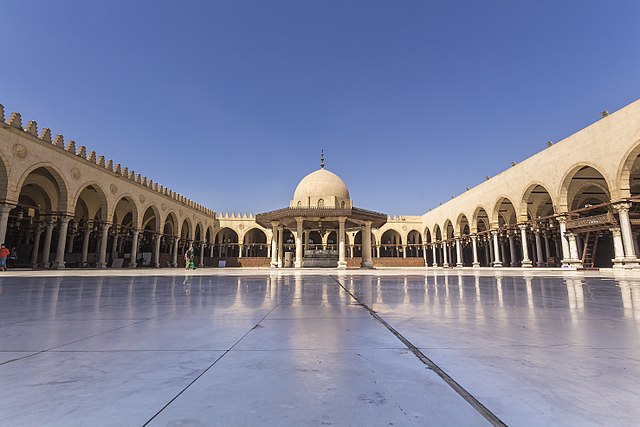'Ubadah ibn al-Samit was a companion of Muhammad and a well-respected chieftain of the Ansar tribes confederation. He participated in almost every battle during Muhammad's era. His official title, according to Muslim scholarly tradition, was 'Ubadah bin Saamit al-Ansari al-Badri for his actions at the Battle of Badr. He served under the first three Rashidun caliphs in the Muslim conquest against the Byzantines.
The courtyard of the Mosque of Amr ibn al-As in 2013. A mosque that was built by Amr ibn al-As with the assistance of Ubadah.
The middle age depiction of Cyprus island, where 'Ubadah ibn al-Samit under Muawiyah conquered
Entrance to the Bāb ar-Raḥma Cemetery, Jerusalem, where the grave of 'Ubadah ibn al-Samit located.
Jami' al-Bazaar mosque in Latakia built by 'Ubadah ibn al-Samit during conquest of Levant
Mu'awiya I was the founder and first caliph of the Umayyad Caliphate, ruling from 661 until his death. He became caliph less than thirty years after the death of the Islamic prophet Muhammad and immediately after the four Rashidun ('rightly-guided') caliphs. Unlike his predecessors, who had been close, early companions of Muhammad, Mu'awiya was a relatively late follower of Muhammad.
Sasanian-style silver dirham minted in Mu'awiya's name, c. 674
A statue representing Uqba ibn Nafi, the Arab commander who conquered Ifriqiya and founded Kairouan in 670, during Mu'awiya's reign. Uqba served as Mu'awiya's lieutenant governor over North Africa until the caliph dismissed him in 673.






